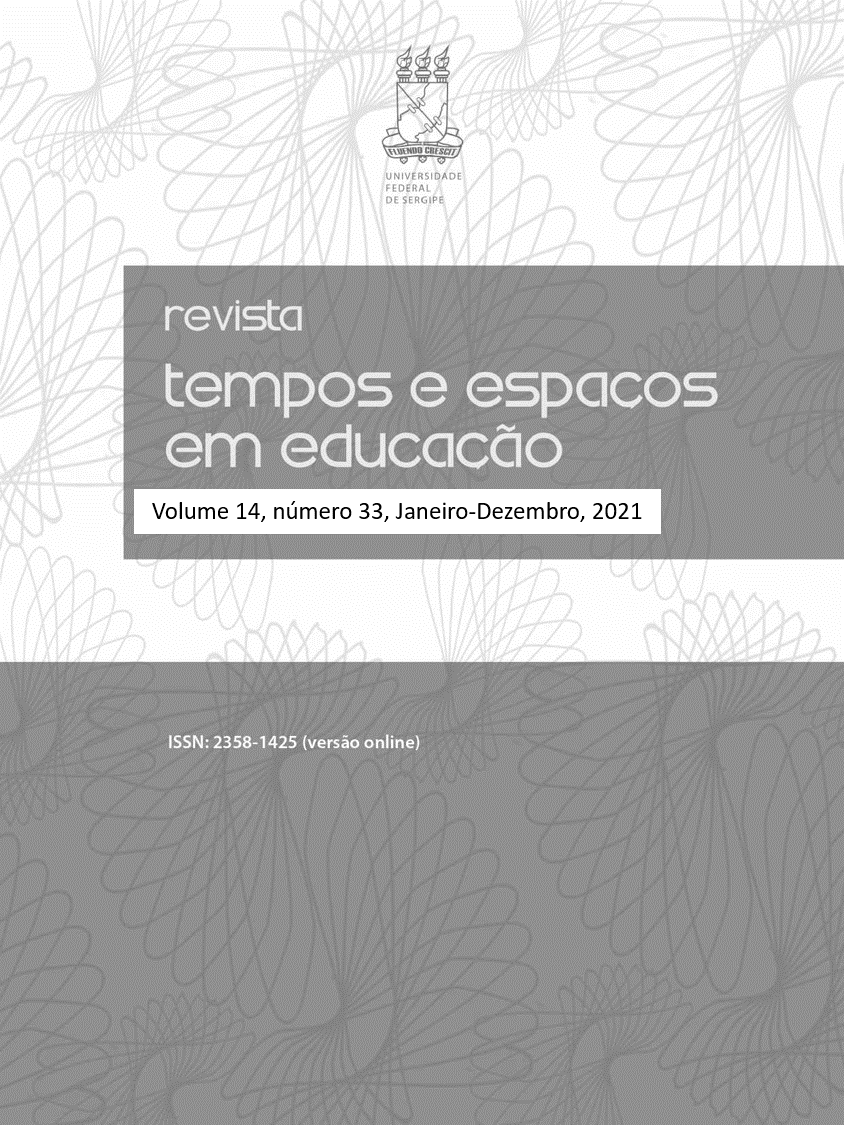Preparing teachers in the professional development system for participation in textbook development in the USA
DOI:
https://doi.org/10.20952/revtee.v14i33.16911Keywords:
Textbook development, Teacher involvement, Professional development, PeculiaritiesAbstract
The article is devoted to the problem of preparing teachers for participation in the development of textbooks in the system of professional development in the USA. The authors analyze scientific works, which discuss the role of teachers in this activity, highlight the challenges teachers face in it and substantiate the importance of their appropriate training. The analysis revealed the peculiarities of the organization, forms and methods of teacher training, which adapt the USA system of professional development to preparing teachers for participation in textbooks development.
Downloads
References
Athans, K. (2018). National writing project fellows’ perceptions of themselves as writers and as teachers of writing. Doctoral dissertation. Sam Houston State University, Huntsville, 246 p.
Boggs, B. (2019, April 2). Why don’t more writers become public school teachers? Literary Hub. Available: https://lithub.com/why-dont-more-writers-become-public-school-teachers/
Daisy, A. L. (2003). Novice teachers’ experiences with telementoring as learner-centered professional development. Doctoral dissertation. University of Texas at Austin, Austin.
Darling-Hammond, L. (1997). The right to learn: A blueprint for creating schools that work. San Francisco: Jossey Bass.
Darling-Hammond, L., Hyler, M. E., & Gardner, M. (2017). Effective teacher professional development. Palo Alto: Learning Policy Institute, p. 64.
Eaton, M. (2014, April 25). The 7 core competencies vital to writing success. Available: https://www.helpingwritersbecomeauthors.com/writing-success/
Ershler, A. R. (2001). The narrative as an experience text: Writing themselves back. In: Lieberman, A., Miller, L. (Eds.). Teachers caught in action: professional development that matter. New York: Teacher College Press, pp. 159-173.
Even, R., & Olsher, S. (2014). Teachers as participants in textbook development: The integrated mathematics wiki-book project. In: Li, Y., & Lappan, G. (Eds.). Mathematics curriculum in school education. New York: Springer, pp. 333-350.
Ferrer Ariza, E., & Poole, P. M. (2018). Creating a teacher development program linked to curriculum renewal. Profile: Issues in Teachers’ Professional Development, 20(2), 249-266. https://doi.org/10.15446/profile.v20n2.67937
Glickman, C. D., Gordon, S. P., & Ross-Gordon, J. M. (2013). Basic guide to supervision and instructional leadership (3rd ed.). Boston: Pearson, 384 p.
Golombek, P. R., & Johnson, K. E. (2017). Re-conceptualizing teachers’ narrative inquiry as professional development. PROFILE Issues in Teachers' Professional Development, 19(2), 15-28. http://dx.doi.org/10.15446/profile.v19n2.65692
Handler, B. (2010). Teacher as curriculum leader: A consideration of the appropriateness of that role assignment to classroom-based practitioners. International Journal of Teacher Leadership, 3, 32-42.
Harris, J. (2010). Facilitated telementoring for K-12 students and teachers. In: Berg, G. A. (Ed.). Cases on online tutoring, mentoring and educational services: Practices and applications. Hershey: IGI Global, pp. 1-11.
Heller, R., Heller, Y., Gorfine, M. (2012). A consistent multivariate test of association based on ranks of distances. Biometrika, 100(2), 503–510. https://doi.org/10.1093/biomet/ass070
Justesen, I. (2019, January 9). 10 Skills every great content writer needs. Available: https://www.constant-content.com/content-writing-service/2019/01/skills-content-writer/
Kennedy, M. M. (1991). Teaching academic subjects to diverse learners. New York: Teachers College Press, 298 p.
Kinsey, M. (2021). Adapting the cascade approach to teacher professional development. Cambridge Education. Available: https://www.camb-ed.com/article/481/adapting-the-cascade-approach-to-teacher-professional-development
Martin, A., Tarnanen, M., & Tynjälä, P. (2018). Exploring teachers’ stories of writing: a narrative perspective. Teachers and Teaching, 24(6), 690-705. http://dx.doi.org/10.1080/13540602.2018.1462790
Marzano, R. J. (2007). The art and science of teaching: a comprehensive framework for effective instruction. Alexandria: Association for Supervision and Curriculum Development, 233 p.
Pears, D. (1988). A guide to planning and administrating government school projects. With special emphasis on costreduction factors. Paris: UNESCO, 95 p.
Pecaski McLennan, D. M. (2013). Educators as authors: Teaching beyond the classroom. Early Childhood Education Journal, 41, 1–4. https://doi.org/10.1007/s10643-012-0558-1
Richards, J. C., & Farrell, T. S. C. (2005). Professional development for language teachers: strategies for teacher learning. Cambridge: Cambridge University Press.
Spring, J. (2002). American education (10th ed.). Boston: McGraw-Hill Higher Education, 305 p.
Starratt, R. J. (1997). Supervision of instruction. The history of supervision, roles and responsibilities of supervisors, issues trends and controversies. Education Encyclopedia. StateUniversity.com. Available: https://education.stateuniversity.com/pages/2472/Supervision-Instruction.html
Tewel, K. J. (1995). New schools for a new century: a leader`s guide to high school reform. Delray Beach: St. Lucie Press, 231 p.
Trotter, Y. D. (2006). Adult learning theories: Impacting professional development programs. Delta Kappa Gamma Bulletin, 72(2), 8-13.
Venezky, R. L. (1992). Textbooks in school and society. In: Jackson, P. (Ed.). Handbook of research on curriculum: A project of the American Educational Research Association. New York: Macmillan Pub. Co, pp. 436-443.
Villegas-Reimers, E. (2003). Teacher professional development: An international review of the literature. Paris: UNESCO International Institute for Educational Planning.
Wei, R. C., Darling-Hammond, L., Andree, A., Richardson, N., & Orphanos, S. (2009). Professional learning in the learning profession: A status report on teacher development in the United States and abroad. Dallas: National Staff Development Council.
Zeichner, K., & Wray, S. (2001). The teaching portfolio in US teacher education programs: What we know and what we need to know. Teaching and Teacher Education, 17(5), 613-621. http://dx.doi.org/10.1016/S0742-051X(01)00017-8
Published
How to Cite
Issue
Section
License
À Revista Tempos e Espaços em Educação ficam reservados os direitos autorais pertinentes a todos os artigos nela publicados. A Revista Tempos e Espaços em Educação utiliza a licença https://creativecommons.org/licenses/by/4.0/ (CC BY), que permite o compartilhamento do artigo com o reconhecimento da autoria.



